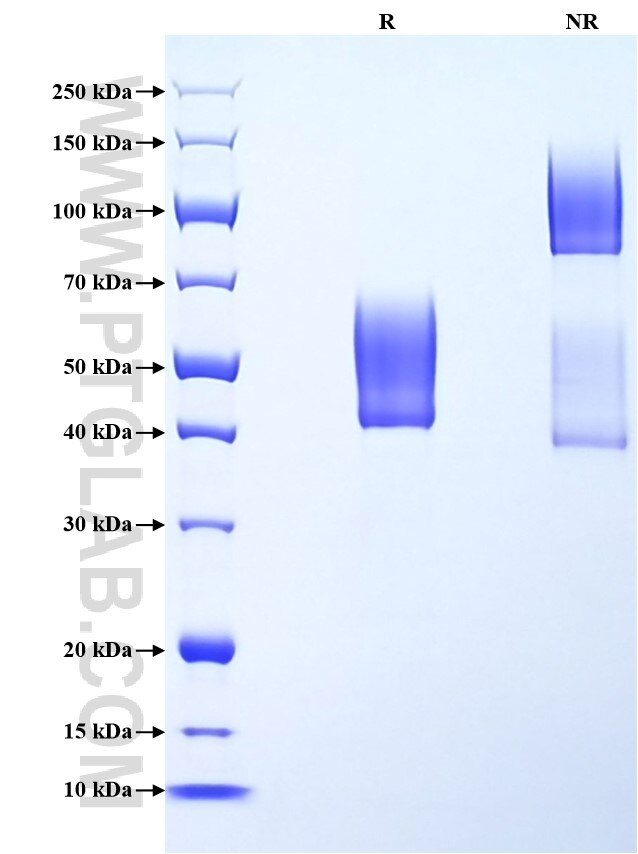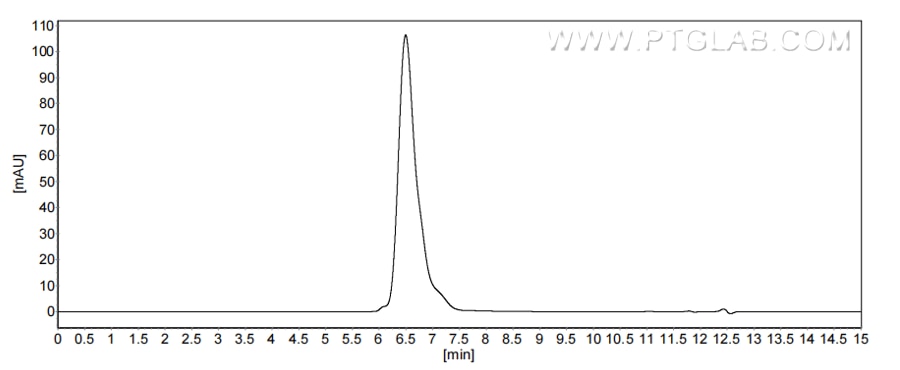Recombinant Mouse Podoplanin/PDPN protein (rFc Tag)(HPLC verified)
Species
Mouse
Purity
>90 %, SDS-PAGE
>90%, SEC-HPLC
Tag
rFc Tag
Activity
not tested
Cat no : Eg2861
Validation Data Gallery
Product Information
| Purity | >90 %, SDS-PAGE >90%, SEC-HPLC |
| Endotoxin | <0.1 EU/μg protein, LAL method |
| Activity |
Not tested |
| Expression | HEK293-derived Mouse Podoplanin protein Gln21-Lys133 (Accession# Q62011) with a rabbit IgG Fc tag at the C-terminus. |
| GeneID | 14726 |
| Accession | Q62011 |
| PredictedSize | 37.9 kDa |
| SDS-PAGE | 43-63 kDa, reducing (R) conditions |
| Formulation | Lyophilized from 0.22 μm filtered solution in PBS, pH 7.4. Normally 5% trehalose and 5% mannitol are added as protectants before lyophilization. |
| Reconstitution | Briefly centrifuge the tube before opening. Reconstitute at 0.1-0.5 mg/mL in sterile water. |
| Storage Conditions |
It is recommended that the protein be aliquoted for optimal storage. Avoid repeated freeze-thaw cycles.
|
| Shipping | The product is shipped at ambient temperature. Upon receipt, store it immediately at the recommended temperature. |
Background
Podoplanin (PDPN) is a transmembrane glycoprotein that plays a role in a variety of biological processes including regulation of blood-lymphatic vessel development, cerebral vascular pattern, and integrity, cell motility, tumorigenesis and metastasis, and mediates tumor cell-induced platelet aggregation in different cancer types. PDPN homologs are found in humans, mice, rats, dogs, and hamsters and are relatively conserved among species.
References:
1. Ukaji T, et al . Cancer Sci. (2021). 112(6):2299-2313. 2. Krishnan H, et al. J Biol Chem. (2013). 288(17):12215-21. 3. Wang X, et al. Cancer Gene Ther. (2023). 30(2):345-357. 4.Astarita JL, et al. Front Immunol. (2012). 3:283.

